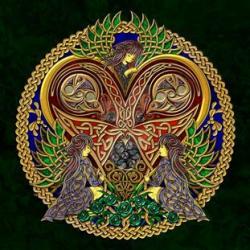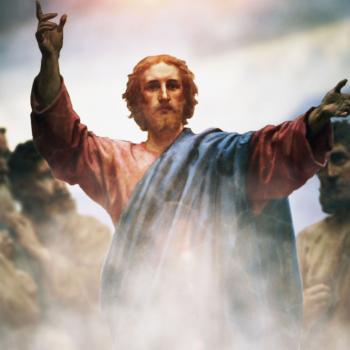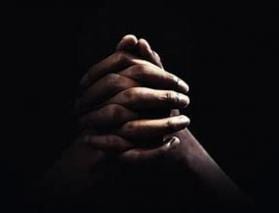 One constant that can be observed in western theology is the different views of scripture. There are those that take a literal and inerrant view, meaning the bible happened exactly how it was written and there is no error to be found in scripture. There are others on the other side that say the bible is a collection of mythologies that teach us about God, ourselves and the world around us. Then, in the middle is where many of us can be found. As westerners, it seems like we must always have the exact answer to everything. If something can not be proven 100 percent, then it is 100 percent wrong. Its also remarkably interesting that we, as believers in the western world typically hold this stance but still believe in things that can not be proven scientifically.
One constant that can be observed in western theology is the different views of scripture. There are those that take a literal and inerrant view, meaning the bible happened exactly how it was written and there is no error to be found in scripture. There are others on the other side that say the bible is a collection of mythologies that teach us about God, ourselves and the world around us. Then, in the middle is where many of us can be found. As westerners, it seems like we must always have the exact answer to everything. If something can not be proven 100 percent, then it is 100 percent wrong. Its also remarkably interesting that we, as believers in the western world typically hold this stance but still believe in things that can not be proven scientifically.
Scripture Was Never Meant to be “Proven”
The resurrection of Christ can not be observed or proven. The Garden of Eden also will never be proven. Does this mean that these things are impossible? I would argue it is just as possible it did happen as written as opposed to being a parable or hyperbole. There are many that would argue that not believing it actually happened that way is grounds for heretical removal from the church. The biggest issue with the stance of literal inerrancy or bust is that it has no bearing on salvation. Further, the stance is a relatively young theological stance.
A Third Way
A possible third way to view the scriptures is one I have endorsed in my forthcoming book Diagacht Trathuil (Timeless Theology) which is contextual inerrancy. Contextual inerrancy simply states that scripture is perfect when it is applied to appropriate context. When scripture speaks on salvation, it is inerrant. When scripture is describing an account like creation, it may or may not be exactly how it happened. I must admit that I am not the first to come up with this view, as it appears in the writing of the Carmina Gadelica.
One of the best accounts is a poem on the flood. The big idea behind contextual inerrancy is to put it back the Bible in context. The Bible was never meant to be a history or science book. It was meant to show people a God that could not be fully described by nature. It also tells the story of people as they struggle with the ways of the world and an all-powerful God. It is a story of Holy Salvation, not a lesson plan for a history class.
Poem of the Flood
Monday will come the great storm,
Which the Airy Firmament will pour.
We shall be obedient the while,
All who will harken.
Tuesday will come the other element,
Heart paining, hard piercing.
Wringing from pure pale cheeks,
Blood, like showers of wine.
Wednesday will blow the wind,
Sweeping bare strath and plain.
Showering gusts of galling grief,
Thunder bursts and rendered hills.
Thursday will pour the shower,
Driving people into blind flight.
Faster than foliage on the trees,
Like leaves of Mary’s plant in terror trembling.
Friday will come the dool cloud of darkness,
The direst dread that ever came over the world.
Leaving multitudes bereft of reason,
Grass and Fish beneath the same flagstone.
Saturday will come the great sea,
Rushing like a mighty river.
All will be at their best,
Hastening to a hill of safety.
Sunday will arise my King,
Full of ire and tribulation.
Listening to the bitter talk of each man,
A red cross on each right shoulder.
This is a poem, originally composed and memorized in Gaelic. It is describing the many emotions one might have felt as the flood began in biblical times. The poem fleshes out some truths of the flood account in scripture that we seem to miss as we try to figure out where the arch rested, or how much water it would have taken to cover the earth. In our scientific pursuit of truth, we miss the context and lessons offered by these biblical accounts.
Days as Little Lessons
Monday describes those who have faith in dire times, and will harken to it and be obedient, will be spared. In the Flood account only Noah’s family was spared, not because Noah was perfect because Noah had been obedient to God. Obedience to what is right is the lesson, not the reality of the flood.
Tuesday describes another element coming, which appears to not only be spiritual, sorrow, but physical sorrow. There was likely a great many things Noah lost and was sorrowful over it. This is a lesson in the reality of our faith. It is painful, both spiritually and physically to do the right thing. It also shows us God understands that we cry out in pain when we suffer. The idea of God allowing things to happen to you pales in comparison to knowing God is with you. We should never tell grieving people “its all in Gods plan”. We should be willing to shed blood tears with those who are suffering.
Wednesday shows to me that God is concerned with the whole planet not just humanity. God created the cosmos, so it is a bit self-centered to believe we are the only ones cared for. It also paints a picture of the destruction of nature due to our poor stewardship. In the Noah account, nature was destroyed because of man. One need not look far to make the connection with our current world.
Thursday describes how quickly we lose control. If we ever had it. This is a realization that people have very little control. We see this all the time when people realize what little control they actually have. Noah’s account also shows us there will be times we will not have control, and we are in need of trusting God. Learning to trust the creator is more important than figuring out how all that water got to the planet in order to cover the earth. Our priorities in biblical comprehension are askew.
Friday describes hopelessness. That is something we rarely talk about on Sunday’s. We hide hopelessness like a disease, fearing people will see it and know that we are somehow not part of the family of God. We need to understand that hopelessness and distress can happen to Christians. It doesn’t mean we are not faithful; it simply means life is happening. We need to do better handling trauma. Trauma and pain are not prayed away, they are loved away.
Saturday describes the looking and longing for safety. I cannot imagine the pain those who drowned in the flood had. We tend to focus on Noah in this story and forget what had to occur for this to really have happened. The desperation and fear were very real. While we cheer Noah, we forget the things and people that had to die. God does not just care about Christians. Our God cares about every single life. Imagine how great a place earth would be if we acted that way.
Sunday describes the return or arrival of the king. But we also see that the king is not pleased. The king is not pleased because of what he hears. The complaining of those who should be the most grateful. This is a true condition in the American Church, ungratefulness. Western Christians are not grateful because we don’t really know what its like to fear for your life for Jesus. We think cloth masks are tribulation, when Christians in China have their churches and homes bulldozed and, in some cases, imprisoned. Noah’s story was written so that we would never forget and understand the responsibility of being spared great pain.
Focus on the Gospel
Noah’s story, whether literal or not is irrelevant. However, the lessons found within it are inerrant. This is how the ancient Celts understood their scriptures. Reading scripture was part of the journey of service to Christ. More important than proving the science of the flood is proving your heart generous enough to be Christ’s hands and feet on earth. Maybe if we focused more on the lessons and applications of scripture than its inerrancy, maybe we could accomplish the gospel of Christ on earth.











